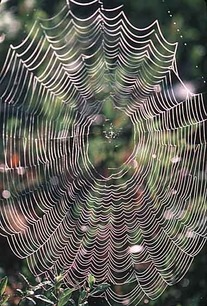
The Great Seduction:The Feminine Works its Magic
"With her cunning play of illusions the soul lures into life the inertness of matter that does not want to live. She makes us believe incredible things, that life may be lived.”
C. G. Jung, CW9i:56
We live in a society dominated by the machine and often think of both body and psyche in mechanical terms as well. What actually sets us apart as living beings - that spark of life which we sometimes call soul or anima - eludes scientific understanding. For all our success in prolonging life, the quality of aliveness is often lacking, making us vulnerable to depression. As human beings, we need to experience soul, not only through an internal sense of aliveness, but in a resonance with our environment as well. Yet, even as we instinctively project soul upon the world, modern psychology places great emphasis on withdrawing those projections as illusory.
A Hindu myth recounts how the gods themselves were drawn into life through the Great Seduction, the work of the Goddess. The myth closely parallels Jung’s ideas about projection and the “feminine” pole of the psyche, while encouraging us to re-value that “cunning play of illusions” which gives psychic life its richness. The lecture unfolds the psychological meaning of this myth and explores what it has to offer for a contemporary process of individuation.
"With her cunning play of illusions the soul lures into life the inertness of matter that does not want to live. She makes us believe incredible things, that life may be lived.”
C. G. Jung, CW9i:56
We live in a society dominated by the machine and often think of both body and psyche in mechanical terms as well. What actually sets us apart as living beings - that spark of life which we sometimes call soul or anima - eludes scientific understanding. For all our success in prolonging life, the quality of aliveness is often lacking, making us vulnerable to depression. As human beings, we need to experience soul, not only through an internal sense of aliveness, but in a resonance with our environment as well. Yet, even as we instinctively project soul upon the world, modern psychology places great emphasis on withdrawing those projections as illusory.
A Hindu myth recounts how the gods themselves were drawn into life through the Great Seduction, the work of the Goddess. The myth closely parallels Jung’s ideas about projection and the “feminine” pole of the psyche, while encouraging us to re-value that “cunning play of illusions” which gives psychic life its richness. The lecture unfolds the psychological meaning of this myth and explores what it has to offer for a contemporary process of individuation.